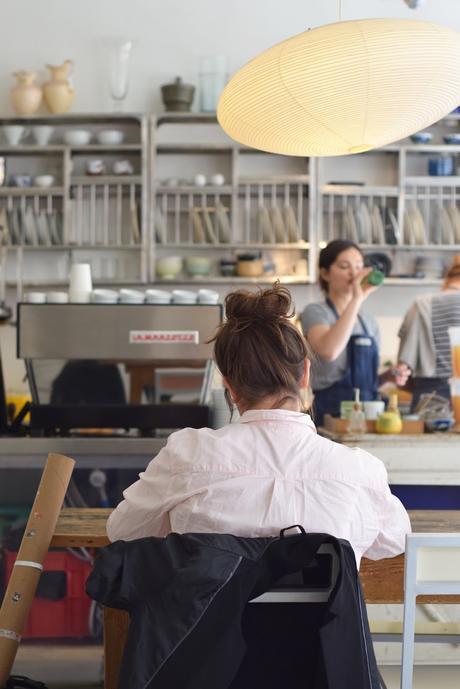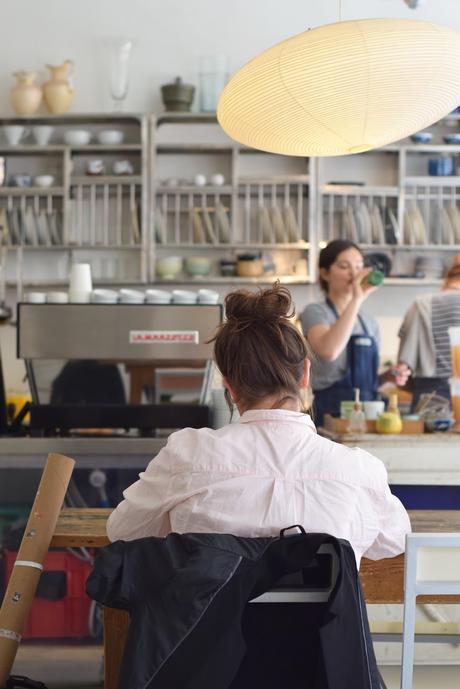Today? I’d like to divulge a few tips for those of you who’re looking into quitting the 9-5 grind in favour of freelance life. Warning: it isn’t for everybody.
Moonlight it first
Before jumping headfirst into murky waters and handing in your notice, it’s good to get a feel of what your workload and income might be like as a freelancer. This may mean that you end up burning the candle at both ends for a few months, but that’ll only help you make a good decision on your future as a freelancer. Do you feel burned out? Which are you more passionate about? Keep track of your finances and count all of your pennies. Use the time to figure out what exactly you’re great at and, more importantly, what you’re great at selling, service-wise. If you’re still very much tempted to make the move, make sure you’ve saved a little money first. A good starting point is to have about 3 months salary saved away ‘for a rainy day’.Network like a maniac
Strictly speaking, this one isn’t a ‘must’. It’s easier now more than ever to network from the comfort of your sofa, but it’s still good to remember to make connections and think from a business POV when meeting people. Sad but true. So many of my past and current clients have come from word of mouth or from chatting to people myself, identifying an opportunity and offering up my services. It takes a while to get the balance on this, especially if you’re not a natural conversationalist like me, but it’s a skill worth polishing.Get the balance right
Nine times out of ten, people make the move to freelancing because they desire a better balance in their life. I know that was the case for me, as I didn’t find a 9-5 day rewarding enough. In fact, I actually used to finish all of my duties and beyond by around 2pm most days and even my managers would be at a loss as to what I could do! I'd find myself taking on tasks beyond my role with no extra recognition and daydreaming of all that I could be doing outside of the office to enrich my mind and further my personal growth. And while that sounds a bit hippie-dippie and ridiculous, what I found from the short period of time when I was attempting a homemade 9-5 in my freelancing was burnout. Utter burnout. What was the point in leaving a full-time role only to attempt the same at home?In a previous post, I made a rough note to you of what exactly it is that I do and that remains true, give or take. I try to be generous with my free time because I know that it is possible to do so and make a worthy living. So what if it means I ‘only work 5 hours a day'? I describe to others that this means I can make a living as well as enjoy my living. I have the luxury of being able to complete errands before the shops close at 5pm, the same time - funnily enough - that 9-5’ers finish work. My weekends become a free for all during which sometimes I work whilst my friends are down at the pub and sometimes I can use them wholly to not have to leg it to the bank and Post Office before they close before beginning my weekend fun times.
Make sure you ‘plan’ the balance and never feel guilty about working less: it’s about working smarter.
Create a routine
Having said all of that, DO create yourself a routine. A loose one. Plot time in for emails, for pitching to potential clients, for checking in with existing ones, updating your books, for a coffee date with yourself, for exercising - if you’d like to, for socialising. A mistake I made early on in my freelancing career was to continue to be at my desk for 9am, skipping breakfast and powering through emails and working on odds and ends as they came through, sitting in my office alone until 5pm. A routine can be whatever you like: mine includes ensuring time spent with my dog and family, at least one workout class a week and at least one external working day/afternoon a week.Make a business plan
Last but certainly not least, make a business plan. It might seem OTT but a business plan will help you to fine-tune your goals and give you a realistic way to benchmark your way of working. One of the toughest things about being my own boss is that I always think I’m on my right path simply because I’m already working for myself. It’s good to create small- and long-term goals to strive for as well as to include things that you can tick off along the way: ‘secure one long-term client’, ‘open a business bank account’, ‘reach 100 followers on [insert business name] Twitter account’. Quantifiable goals might seem scary but it’s important to continue to challenge yourself, that way you can make yourself accountable should you fail to meet the goals and recalibrate, find new ways to hit those goals of yours.Are you considering freelancing? Read my other advice posts here.

My Top Tips for To-Be Freelancers
25.7.17 When I moved back from Hong Kong last year, my plan was to freelance until October, review the situation and then job hunt or continue to pursue my dream, depending on the situation. Many months later, I’m happily chasing dreams and slurping coffee like an absolute boss and it’s safe to say I’ve learned a lot. I began my career freelancing full-time for a company that I still hold close to my heart today but it wasn’t until February 2016 that I really got into a groove with my business plan.Today? I’d like to divulge a few tips for those of you who’re looking into quitting the 9-5 grind in favour of freelance life. Warning: it isn’t for everybody.
Moonlight it first
Before jumping headfirst into murky waters and handing in your notice, it’s good to get a feel of what your workload and income might be like as a freelancer. This may mean that you end up burning the candle at both ends for a few months, but that’ll only help you make a good decision on your future as a freelancer. Do you feel burned out? Which are you more passionate about? Keep track of your finances and count all of your pennies. Use the time to figure out what exactly you’re great at and, more importantly, what you’re great at selling, service-wise. If you’re still very much tempted to make the move, make sure you’ve saved a little money first. A good starting point is to have about 3 months salary saved away ‘for a rainy day’.Network like a maniac
Strictly speaking, this one isn’t a ‘must’. It’s easier now more than ever to network from the comfort of your sofa, but it’s still good to remember to make connections and think from a business POV when meeting people. Sad but true. So many of my past and current clients have come from word of mouth or from chatting to people myself, identifying an opportunity and offering up my services. It takes a while to get the balance on this, especially if you’re not a natural conversationalist like me, but it’s a skill worth polishing.Get the balance right
Nine times out of ten, people make the move to freelancing because they desire a better balance in their life. I know that was the case for me, as I didn’t find a 9-5 day rewarding enough. In fact, I actually used to finish all of my duties and beyond by around 2pm most days and even my managers would be at a loss as to what I could do! I'd find myself taking on tasks beyond my role with no extra recognition and daydreaming of all that I could be doing outside of the office to enrich my mind and further my personal growth. And while that sounds a bit hippie-dippie and ridiculous, what I found from the short period of time when I was attempting a homemade 9-5 in my freelancing was burnout. Utter burnout. What was the point in leaving a full-time role only to attempt the same at home?In a previous post, I made a rough note to you of what exactly it is that I do and that remains true, give or take. I try to be generous with my free time because I know that it is possible to do so and make a worthy living. So what if it means I ‘only work 5 hours a day'? I describe to others that this means I can make a living as well as enjoy my living. I have the luxury of being able to complete errands before the shops close at 5pm, the same time - funnily enough - that 9-5’ers finish work. My weekends become a free for all during which sometimes I work whilst my friends are down at the pub and sometimes I can use them wholly to not have to leg it to the bank and Post Office before they close before beginning my weekend fun times.
Make sure you ‘plan’ the balance and never feel guilty about working less: it’s about working smarter.
Create a routine
Having said all of that, DO create yourself a routine. A loose one. Plot time in for emails, for pitching to potential clients, for checking in with existing ones, updating your books, for a coffee date with yourself, for exercising - if you’d like to, for socialising. A mistake I made early on in my freelancing career was to continue to be at my desk for 9am, skipping breakfast and powering through emails and working on odds and ends as they came through, sitting in my office alone until 5pm. A routine can be whatever you like: mine includes ensuring time spent with my dog and family, at least one workout class a week and at least one external working day/afternoon a week.Make a business plan
Last but certainly not least, make a business plan. It might seem OTT but a business plan will help you to fine-tune your goals and give you a realistic way to benchmark your way of working. One of the toughest things about being my own boss is that I always think I’m on my right path simply because I’m already working for myself. It’s good to create small- and long-term goals to strive for as well as to include things that you can tick off along the way: ‘secure one long-term client’, ‘open a business bank account’, ‘reach 100 followers on [insert business name] Twitter account’. Quantifiable goals might seem scary but it’s important to continue to challenge yourself, that way you can make yourself accountable should you fail to meet the goals and recalibrate, find new ways to hit those goals of yours.Are you considering freelancing? Read my other advice posts here.

